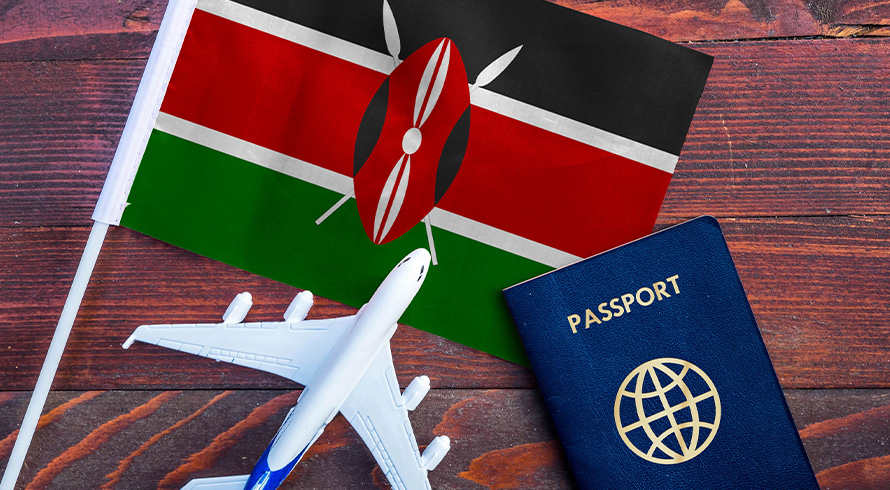Mr Zuma, it is time to #PayBackTheMoney
At a glance
- Former South African president Jacob Zuma unlawfully used state funds to finance his personal legal defense in corruption proceedings.
- The Supreme Court of Appeal (SCA) dismissed Zuma's appeal and ordered him to repay the funds, which amounted to approximately R25 million.
- The SCA found that the State Attorney Act did not authorize the funding of private legal costs and that it was just and equitable for Zuma to repay the money to remedy the abuse of public resources.
In 2005, Shabir Shaik (Mr Shaik) was convicted on two counts of corruption and one count of fraud. Mr Shaik was sentenced to 15 years’ in prison and a week later, former President Thabo Mbeki (Mr Mbeki) relieved Mr Zuma – who was implicated in this corruption – of his then duties as the Deputy President of South Africa.
Soon thereafter, the National Director of Public Prosecutions (NDPP) indicted Mr Zuma on two counts of corruption, and Mr Zuma engaged the services of Hulley Inc, a private firm of attorneys, to act as his attorneys of record. Hulley Inc wrote to the State Attorney requesting financial assistance at the State’s expense in respect of Mr Zuma’s looming corruption trial. Hulley Inc requested the State cover its costs and the costs of four counsel (two senior and two junior). The request included an undertaking;
“on demand to refund the State Attorney all costs incurred by the State Attorney in connection with Mr Zuma’s defence should the court find that [he] acted in [his] personal capacity and own interests in the commission of alleged offences”.
By the end of 2007, the NDPP confirmed that Mr Zuma would be indicted on two counts of corruption, twelve of fraud and one each of racketeering, money laundering and tax evasion. This was followed by a second request by Hulley Inc to the State Attorney to cover its costs and that of four counsel and included an undertaking “on demand to refund to the State Attorney all costs incurred by the State Attorney in connection with [his] defence.” The requests were granted.
What followed was a decade-long legal battle including the decision to discontinue Mr Zuma’s prosecution, review applications, and procedural challenges, all of which culminated in the NDPP’s March 2018 decision to reinstate the charges against Mr Zuma. The Democratic Alliance (DA) and Economic Freedom Fights (EFF) vigorously pursued requests to obtain clarity around the source of funding for these ongoing proceedings. On 13 March 2018, the then Presidential Spokesperson, Ms Khusela Diko, went on record to confirm that all expenditure that the State had incurred in connection to Mr Zuma’s corruption trial were ‘in line with the provisions of the State Attorney Act.’ The State Attorney thereafter confirmed in a letter responding to the DA that the decision to provide Mr Zuma with legal representation at state expense was taken in accordance with section 3(1) of the State Attorneys Act 56 of 1957.
The DA and EFF launched separate review applications in the High Court for orders, inter alia, reviewing, declaring unconstitutional and setting aside the Presidency, State Attorney and further officials’ decision to use public funds to fund Mr Zuma’s defence in his corruption trial and for Mr Zuma to repay the funds, which were by then in the region of a staggering R25 million. Both applications succeeded, and the High Court saw it fit to penalise Mr Zuma with a costs order in respect of both applications.
It is an appeal against these orders that was brought before the SCA on three grounds (a) the DA and EFF failed to bring their applications within a reasonable time, (b) section 3 of the State Attorney Act (Act) did authorise the funding of private legal costs and (c) it was not just and equitable to require Mr Zuma to pay back the money.
In its assessment of the first ground the SCA noted that it is difficult to precisely determine when the clock started ticking, because as long as Mr Zuma occupied the highest office in the land, (a) he was both the ultimate decision-maker and beneficiary and (b) the funding of his legal case was engulfed in secrecy. On appeal, much store was placed on the High Court’s observation that the DA knew of a decision for the State to pay Mr Zuma’s legal costs in 2008, and that the EFF might reasonably be expected to become aware of such a decision in 2013. The SCA was, however, unpersuaded by Mr Zuma’s ‘speculative hypothesis’ as to when the DA and EFF came to learn of the true nature and extent of the decision to foot his legal bill, and that the scale and extent of the funding was only revealed when the rule 53 records were filed in the review proceedings. The SCA paused to comment that the effective blank cheque that was granted to Zuma to pay his private lawyers was egregious, and that a web of maladministration made this possible, and went on to dismiss this ground as being ‘breathtakingly audacious.’
As a second ground of appeal Mr Zuma argued that the State Attorney was authorised by either section 3(1), or section 3(3), of the Act to appoint and pay private attorneys to represent him. The SCA dealt with this ground swiftly and found that neither section authorises the State to cover private legal costs, and that they only provide for the provision of services by the State Attorney. Section 3(1) straightforwardly authorises the State Attorney to act on behalf of government and to perform duties that would ordinarily be performed by legal representatives. The SCA found that the Presidency and State Attorney conflated a government official acting in an official capacity and when he or she acts in his personal capacity. Mr Zuma was in all relevant litigation cited in his personal capacity – and worse still, was at the time of some of the payments, no longer in government office – and therefore s3(1) could not be relied on. Section 3(3) authorised the State Attorney to perform the same functions in connection with any matter where the government, although not a party, is interested or if it is in the public interest to do so. The SCA made clear that the government and the public can hardly have a legitimate interest in supporting a defence against criminal charges by an incumbent or former public office bearer and especially not in respect of charges of dishonesty and corruption. Allowing officials to resist being held accountable, by drawing on state resources to obstruct or delay a prosecution, subverts the government’s (and the public’s) interest.
As regards the third ground, the EFF argued that the only just and equitable order would be to order Mr Zuma to pay back the money and pointed out that in the letters sent to the State Attorney by Hulley Inc requesting funding, Mr Zuma made an undertaking to repay the money ‘on demand’ and therefore he made provision for the possibility that he would some-day have to repay the State.
Mr Zuma argued he had material evidence to counter this but presented no factual material to support his claims. There was accordingly nothing before the High Court to suggest that the order sought was not just and equitable in the circumstances. The SCA unsurprisingly agreed and found that a just and equitable remedy in this case requires a full and complete accounting by the State Attorney under oath, and an order directing Mr Zuma to repay to the State the legal costs incurred on his behalf. The SCA found that a repayment order was essential to remedy the abuse of public resources, vindicate the rule of law, and reaffirm the constitutional principles of accountability and transparency, especially by a former incumbent of the highest office in the land. Simply setting aside the decision to pay, without ordering an accounting and repayment, would achieve none of those crucial remedial objectives. This ground was dismissed.
In his application for leave to appeal, Mr Zuma alleged that the High Court was, amongst other things ‘hell-bent on finding against [me] on any point possible’ and ‘had become accustomed to its trend of punishing me with costs all the time.’ No factual foundation was laid and despite the EFF in its answering affidavit inviting Mr Zuma to withdraw these scandalous accusations, Mr Zuma persisted with his stance. The SCA remarked that ‘imputing bias on a judicial officer should not lightly be made’, that although the courts are open to robust criticism, this criticism must still fall within acceptable bounds, and that Mr Zuma’s allegations were made with a reckless disregard for the truth. Mr Zuma’s application was dismissed in its entirety with costs, including the costs of two counsel, on an attorney client scale, and the SCA confirmed the High Court’s decision to ultimately order Mr Zuma to repay the money.
It remains to be seen if Mr Zuma will honour the judgment or seek to draw the matter out even further by appealing to the Constitutional Court, another court against which he has recently cast serious aspersions.
The information and material published on this website is provided for general purposes only and does not constitute legal advice. We make every effort to ensure that the content is updated regularly and to offer the most current and accurate information. Please consult one of our lawyers on any specific legal problem or matter. We accept no responsibility for any loss or damage, whether direct or consequential, which may arise from reliance on the information contained in these pages. Please refer to our full terms and conditions. Copyright © 2026 Cliffe Dekker Hofmeyr. All rights reserved. For permission to reproduce an article or publication, please contact us cliffedekkerhofmeyr@cdhlegal.com.
Subscribe
We support our clients’ strategic and operational needs by offering innovative, integrated and high quality thought leadership. To stay up to date on the latest legal developments that may potentially impact your business, subscribe to our alerts, seminar and webinar invitations.
Subscribe




